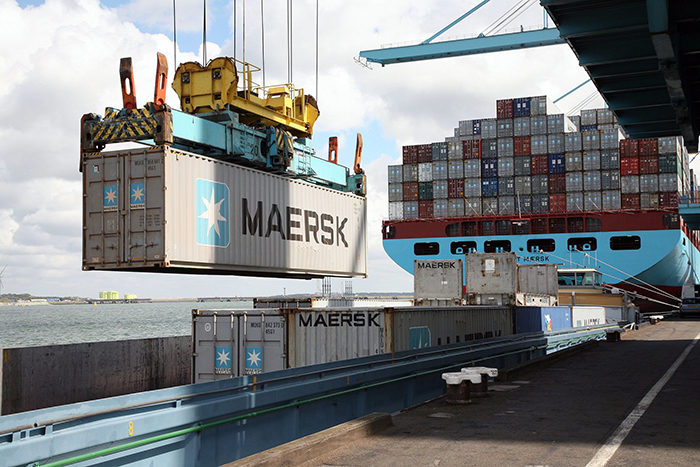
Maersk Group confirmed that “IT systems are down across multiple sites and business units” as a consequence of the global Petya cyberattack. A new and highly virulent outbreak of malicious data-scrambling software appears to be causing mass disruption across Europe, hitting Ukraine especially hard.
Company and government officials reported serious intrusions at the Ukrainian power grid, banks and government offices, where one senior official posted a photo of a darkened computer screen and the words “the whole network is down”.
Russia’s Rosneft oil company also reported falling victim to hacking, as did Danish shipping giant AP Moller-Maersk.
“We are talking about a cyberattack,” said Anders Rosendahl, a spokesman for the Copenhagen-based group.
“It has affected all branches of our business, at home and abroad.”
In a Twitter message posted the morning of June 27, leading maritime conglomerate Maersk Group confirmed that “IT systems are down across multiple sites and business units” as a consequence of the global Petya cyberattack.
The ransomware appeared to have affected the web pages of container division Maersk Line and terminal operator APM Terminals, both of which were offline as of 1830 GMT on Tuesday. Maersk Group’s main site was still up, as were sites for Maersk Oil, Maersk Drilling and U.S. flag service Maersk Line Limited.
The attack on Maersk comes after years of warnings by leading industry bodies of the dangers of cyber threats. Many of the industry’s biggest concerns center on shipboard systems, and it was not immediately clear whether computers aboard Maersk’s fleet of hundreds of vessels and rigs were affected.
The cyberattack follows just weeks after the similar “WannaCry” ransomware attacks on the UK’s National Health Service and hundreds of other organisations worldwide. In that attack, victims were asked to pay a few hundred dollars to unencrypt their hard drive and retrieve their data – or risk losing it permanently.
Source:
